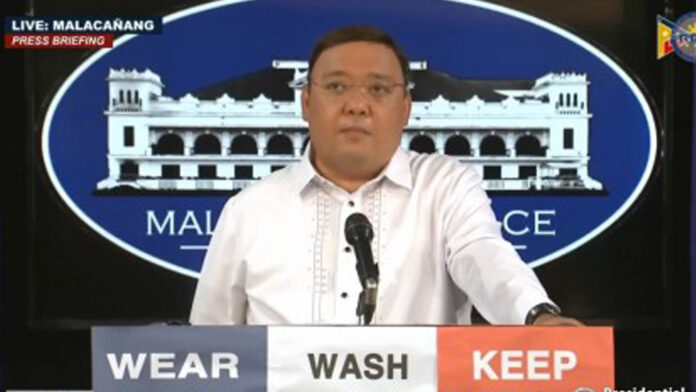With the cooperation of everyone, Malacañang on Tuesday said the economy will recover from multiple shocks, including the coronavirus disease 2019 (Covid-19) pandemic that hit the country this year.
Presidential Spokesperson Harry Roque made this comment following the World Bank’s (WB) latest projection that the Philippine economy will shrink by 8.1 percent this year due to the Covid-19 and devastating typhoons.
“Siyempre po nalulungkot tayo diyan dahil ibig sabihin mas marami maghihirap sa pagbagal ng ating pag-unlad. Pero iyan naman po ay naging resulta ng pandemya at ng mga sigalot na sunod-sunod na dumaan sa ating bansa. Kaya po natin ito, babangon tayo, (Of course, we are sad because if means more people will suffer due to slow growth. But it is the results of pandemic and series of disruptions that hit the country. We can do it, we will recover) we will do better in 2021,” Roque said in a press briefing.
Roque reiterated the government’s appeal to follow the minimum health protocols designed to prevent the spread of the deadly Covid-19.
“And pagdating po sa pandemya, kaya po natin ito, sundin lang natin ang sinasabi ng Presidente: Mask, Hugas, Iwas. Pag-ingatan ang buhay para sa hanapbuhay (And when it comes to pandemic, we will overcome this, just follow what President (Rodrigo Duterte) said: wear face mask, wash hands, physical distancing. Protect life for work),” he said.
In its latest Philippine Economic Update, the WB said that while the country’s economy is expected to contract in 2020, it noted “sustained improvements” in managing the pandemic and “a possible rebound in the global economy can help the country recover in 2021 and 2022”.
The current economic forecast is a revision from the -6.9 percent World Bank forecast in October, resulting from the deep contraction in the third quarter and the extensive damage and losses suffered by the country from the typhoons and floods in November.
“The series of natural disasters that hit the country while we are battling the pandemic highlights the importance of mainstreaming disaster risk reduction and climate change adaptation into policy and planning,” said Ndiame Diop, World Bank Country Director for Brunei, Malaysia, Thailand and the Philippines. “While the Philippines is financially resilient, stronger coordination, execution and implementation will help further improve social and physical resilience to frequent shocks.”
Typhoons Rolly, Siony, and Ulysses that hit the country in November in just a span of two weeks have brought devastation to a large swath of Luzon, further darkening this year’s growth outlook.
Economic activities across the country frozen by quarantine measures and the global recession will also likely contract the economy in 2020, temporarily reversing gains made in poverty reduction in recent years, according to the WB.
Prior to these disaster events, the economy had already posted a 10-percent contraction in the first three quarters, the worst since the 1985 debt crisis, due to a plunge in private domestic demand, deep contraction in investment activities, and weak exports, it added. (PNA)


